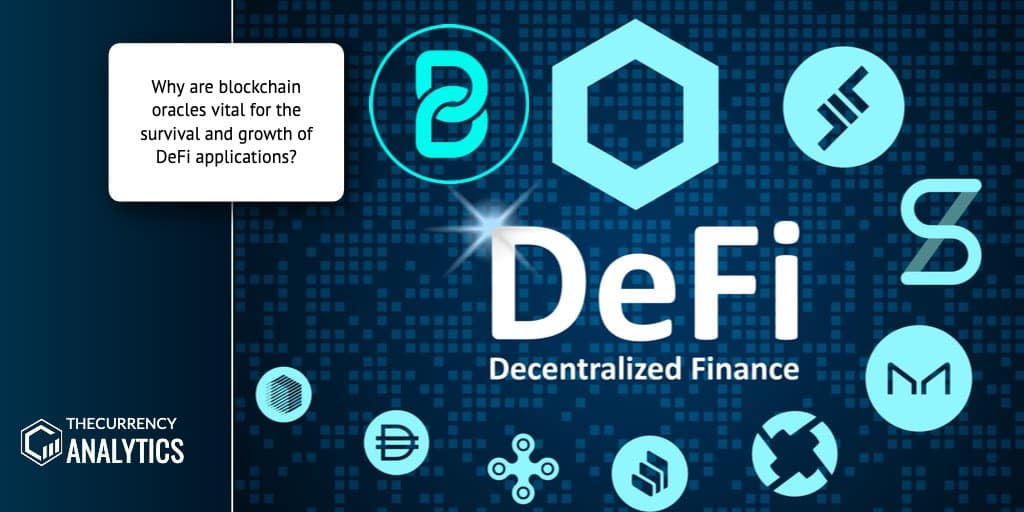
The DeFi ecosystem aims to create a decentralized environment where people will have greater access to different financial applications yet without being governed by a centralized intermediary. Based on blockchain infrastructure, the DeFi system will enable more affordable and faster financial settlements/transactions compared to traditional centralized financial systems. The number of DeFi apps are rising and currently the total value locked in DeFi is a whopping 9 billion USD compared to 681 million USD in the early quarter of 2020.
But among all these rosy stories of the dramatic rise of DeFi, one thing is for sure – DeFi apps need Oracles for their survival and growth.
Problem with smart contracts
DeFi apps are many and varied, ranging from decentralized exchanges to stablecoins to prediction markets to yield farming and so on. These DeFi applications are developed on smart contracts embedded in blockchains. Now, the point is these DeFi apps require real-time price details from diverse markets to function. Let’s take the example of DeFi prediction markets. These portals require constant market information to make predictions. But, here comes the catch. Smart contracts, on which these DeFi apps are built on, are unable to access external world data given blockchain’s underlying restrictions. This particular glitch singularly limits the functional scope of DeFi apps to a huge extent.
This is where Oracles come to the rescue.
How can oracles help?
Oracle systems are developed to feed real-world data into blockchain smart contracts which eventually empowers the DeFi apps to operate at their full potential. It can be said, oracles work to connect the gap that has been existing in between off-chain (real-world) and on-chain (blockchain) worlds. Thus, it’s indispensable for blockchains (hosting DeFi apps) to connect with oracle systems to further the growth of DeFi today.
Now, it’s to note here oracles can be centralized and decentralized. In centralized oracles, data are provided by one single authority and there is no way to verify the accuracy of information received. But, DeFi apps need credible, tamper-proof data to function at the best. This is where decentralized oracles come in. In contrast to the centralized counterpart, the decentralized sources data from various entities which makes it easier to compare and check the accuracy of data.
Growth of oracles linked to rise of DeFi
The rise of the DeFi ecosystem has created a steady demand for oracles, especially decentralized oracles of late. In that light, oracle projects and oracle-based crypto coins too are witnessing massive attention and rising market cap. Chainlink (LINK) is one of the most notable oracles here whose market cap has grown to a huge 7.4 billion USD in less than 3 years since its launch.
Another latest name in the list of leading oracles today is Bridge, the first ever decentralized public oracle for TRON blockchain. The oracle has garnered immense popularity since its announcement, so much so, that the Bridge IEO got sold out in just a few hours of launch last month. Bridge oracle assures ability to access reliable external data through varied forms of APIs and parsing helpers like XML, HTML etc. The cutting-edge oracle also ensures ability to add diverse kinds of proof to prove authenticity of injected data to enhance the efficiency of DeFi apps.
Get the latest Crypto & Blockchain News in your inbox.